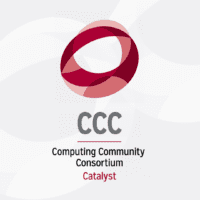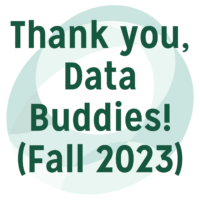Get To Know NSF CSGrad4US: Highlighting Current Fellows
By Elora Daniels, Communications Associate
As applications roll in for the NSF CSGrad4US program, the Computing Research Association (CRA) is continuing to highlight some of the current Fellows participating in the program.
The NSF CSGrad4US Fellowship is open to anyone who has been out of school since January 2024. To help answer questions from the community and provide general insights into the program, the CSGrad4US team hosted an informational webinar to answer questions for those interested in applying this year.
Learn more and apply for the CSGrad4US Fellowship by May 31, 2024: https://cra.org/csgrad4us/
If you’re still not sure if you’re the right fit for the fellowship, take a look at the diverse backgrounds and fields being explored by our current fellows:
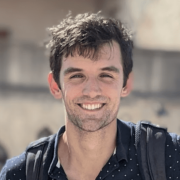
David Atkinson, Northeastern University
Computer Science — Interpreting Deep Learning Models
I am a first-year PhD student at Northeastern University, advised by David Bau and Byron Wallace. My research interests revolve around interpreting and controlling large language models. Before starting the PhD, I worked as a software engineer at an agricultural startup, and then as a researcher at Epoch, investigating when and how we should expect advanced AI capabilities to arrive. I majored in Math and Computer Science at the University of Colorado, Boulder, where I did NLP research advised by Chenhao Tan.
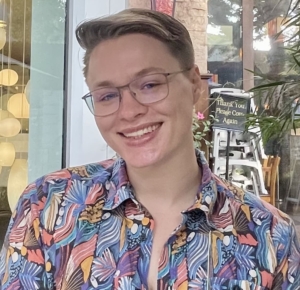 Sarah Boelter, University of Minnesota
Sarah Boelter, University of Minnesota
Computer Science and Engineering — AI and Robotics
Sarah graduated with her undergraduate degree in Computer Science from the University of Alaska Anchorage. She worked for four years in the aviation industry as a software engineer before beginning her doctorate in Computer Science at the University of Minnesota in Minneapolis. Her research interests include the intersection of artificial intelligence and robotics in aviation and space, and is currently working on robotic autonomy in high-risk planetary environments. Sarah is on the University of Minnesota Nordic Ski Team, enjoys spending time outdoors, and volunteering with local animal rescues. Sarah is supported in her studies by her spouse, Patrick and her cat, Squeak.
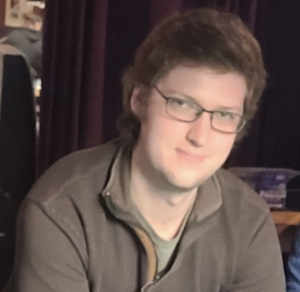 Jordan Esiason, North Carolina State University
Jordan Esiason, North Carolina State University
Computer Science — Machine Learning/AI
Jordan Esiason is a graduate student at North Carolina State University’s Department of Computer Science. He received his Bachelor’s degrees in Statistics and Music Composition at the University of Massachusetts Amherst in 2019. He worked in the computer science education research field for SageFox Consulting Group after graduation, becoming involved in a number of grant-funded projects that aimed to increase the accessibility and quality of computer science education in the United States. His research interests currently include applying natural language processing and artificial intelligence to computer science education, such as in the creation of intelligent tutoring agents.
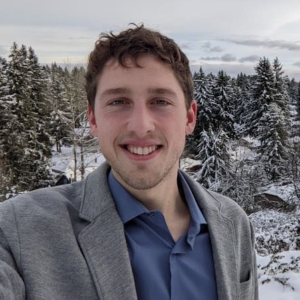 Steven Golob, University of Washington Tacoma
Steven Golob, University of Washington Tacoma
School of Engineering and Technology — Privacy-preserving machine learning, fair AI, differential privacy
Steven is a lifelong student of mathematics and computer science. Having spent time at the Boeing Company as a software engineer, working on the flight simulator, he is now in the PhD program at the University of Washington Tacoma. There, he was the lead of a team that won 1st place in the SNAKE challenge on privacy attacks against synthetic data. He is also the recipient of the SET Outstanding Graduate Research Award (2023) and the Andrew and Julie Fry Innovation Award (2023) for his contributions to the solution with which his research team won 2nd place in the NSF-hosted U.S.-U.K. PETs Prize Challenge 2023. His research interest is in privacy-preserving machine learning (PPML) and fair AI, critical fields that address the widespread concerns of handling personal data securely and equitably. Steven sees research in PPML as a way to contribute meaningfully toward technologies that have huge impacts in people’s lives. At the same time, working in academia will allow him to fuel his passion for helping and mentoring his fellow computer science students.
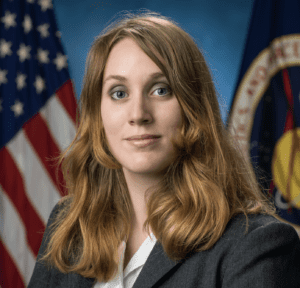 Leah Lackey, Cornell University
Leah Lackey, Cornell University
Electrical & Computer Engineering — Robotics
My research area is robotics, with a particular interest in motion planning and incorporating my past research experience with machine learning. I have always had a great interest in robotics due to its multidisciplinary nature and great potential to positively impact society. I also have a deeper, more personal draw to it from my experience undergoing a surgery with the da Vinci robotic surgical system. While I’m still deciding on a specific project to dive deeper into, I am heavily influenced by a desire to help people through robotics. My undergraduate Electrical & Computer Engineering degree was completed at Western Washington University in Bellingham, WA. I have also completed an internship at NASA and a research position at Yale University, which have helped hone my skills and interests.
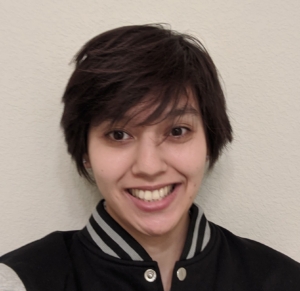 Gabriella “Nikki” Ramirez, Virginia Tech
Gabriella “Nikki” Ramirez, Virginia Tech
Computer Science — Dark Patterns and User Security and Privacy in Virtual Reality
Nikki Ramirez is a second-year PhD student focusing her research on dark patterns as well as user security and privacy in virtual reality. She is advised by Dr. Brendan David-John. Previous projects included virtual monitors in augmented reality, subtle gaze guidance in a 360° video, and visceral notices for eye-tracking. Currently, she is exploring user privacy concerns and needs in regards to potential risks and dark patterns in extended reality (virtual reality, augmented reality, mixed reality). G. Nikki Ramirez graduated from University of Colorado Boulder in 2019 with a BA in Computer Science and Minors in History and English Creative Writing. She previously worked at University of Colorado Denver’s Physics Department with the Super Cryogenic Dark Matter Search (SCDMS) collaboration as a Staff Scientist, as well as at Micro Focus as a Software Engineer II. In her free time, Nikki writes science fiction/fantasy novels, plays video games, and runs table-top RPG campaigns.
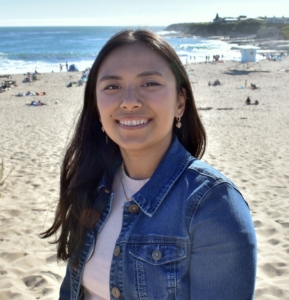 Kaleen Shrestha, University of Southern California
Kaleen Shrestha, University of Southern California
Computer Science — Human-Robot/Computer Interaction
Kaleen is a first year Ph.D. student in the Computer Science department at the University of Southern California working at the Interaction Lab with Professor Maja Matarić. She is interested in multi-party dynamics and multi-modal machine learning in the context of investigating how socially assistive robots can help children learn to resolve conflict. Prior to USC, she worked as a Research Analyst for two projects related to automatic speech recognition for low-resource languages and analyzing dehumanization in social media at the University of California, Santa Cruz in the Natural Language Processing department. She received a B.S. in Computer Science and an M.S. in Natural Language Processing from the University of California, Santa Cruz.
Curious about how NSF CSGrad4US has changed the lives of our Fellows? Hear directly from some of our fellows about what they’ve gained (so far) from the mentoring program:








